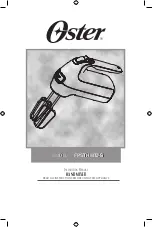
8
1. THE MANUAL
We know that reading manuals can be a bore, and that you are probably impatient to get started with your new
DX500 mixer, if you havent already! It is true that with a modicum of knowledge about audio equipment you
could get up and running successfully, but chances are you will not be able to exploit the full potential of your
DX500 (or yourself) until you have some of its more advanced features explained. Please, please at least read
through all the text in this section, which contains important safety tips to help preserve you and your valuable
equipment.
+
Youll get nowhere with your DX500 unless it is properly connected to your music sources,
power amplifiers, tape recorder etc. We strongly advise that you never use cheap connecting
plugs for audio - use only gold-plated ones, as these are best at resisting corrosion. Run any
mic on a balanced line to minimise unwanted interference, and check those mains plugs for
loose cable clamps or electrical contacts frequently!
Good quality plugs are extremely important, all the more so where connections are left untouched for long
periods. (Unplugging leads frequently can help to keep contacts clean by mechanical abrasion). Also moisture
in a humid nightclub greatly accelerates the buildup of oxide (e.g. rust) on metal contacts.
+
Never patch line level devices into your highly sensitive phono inputs. Phono cartridge output
is measured in millivolts. CD and tape players are of the order of magnitude of a volt. With line
levels you are looking at signals 100 times more powerful than a phono pre-amplifier is de-
signed to handle !
+
Please always ensure that the mixer power supply is securely connected to the mixer before
you turn on the mains supply. Power amplifiers should always be turned on last of all in order
to minimize switch-on thumps, which can easily damage loudspeakers. Check that there is no
signal going through the DX500 when the amps are switched on in order to avoid any sudden
volume surges. Best turn down all output faders and rotary controls first !
This manual is a combination of figures and text. Together these precisely define and describe all the functions
of your DX500. For reasons of clarity you might find certain text or subject matter appears more than once in
the manual. This means we pay a little more in printing and publishing costs, but it does mean that each
section is self-contained and therefore easier for you to read.
Sometimes technical information is provided in brackets. Dont worry - you dont need to know what the figures
mean in order to have success with your DX500. This info is included for the benefit of sound engineers, not
DJs! The manual is also crammed full of creative ideas on how to play your DX500 to full advantage. Try to read
it from cover to cover at least once. Otherwise youll never know what possibilities you might be missing out on!
2. PRO MIXER OVERVIEW
The DX500 is a multi-functional stereo mixer designed for all applications where pre-recorded music is mixed
and played. It is equally at home, in dance clubs, personal DJ setups and broadcast studios. It has three
stereo music channels. The first of these can accept a DJ mic. The mic channel is routed to the main mix
directly. Music channels 2 and 3 pass through a super-smooth cross fader.
2.1 Highly accurate MAIN and PFL VU bargraph meters
The main output level is constantly monitored by a pair of highly accurate VU bargraph meters
. In addition,
all channels have PFL (Pre-Fader-Listen). This means that you can see (on the bargraph meters) and hear (on
headphones)
the music you are about to play - essential if you want to come in at the same level as and
in time with the music currently playing. All professional DJs strive to do this, often overlapping two tracks, or
slowly cross fading between them. (These and other DJ mixing tricks will be explained elsewhere in this
manual.)
1. THE MANUAL








































